| Listing 1 - 10 of 10 |
Sort by
|
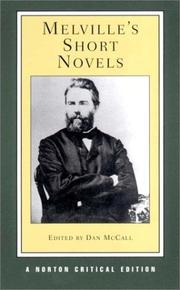
Abstract | Keywords | Export | Availability | Bookmark
 Loading...
Loading...Choose an application
- Reference Manager
- EndNote
- RefWorks (Direct export to RefWorks)
Article
Abstract | Keywords | Export | Availability | Bookmark
 Loading...
Loading...Choose an application
- Reference Manager
- EndNote
- RefWorks (Direct export to RefWorks)
Digital
Abstract | Keywords | Export | Availability | Bookmark
 Loading...
Loading...Choose an application
- Reference Manager
- EndNote
- RefWorks (Direct export to RefWorks)
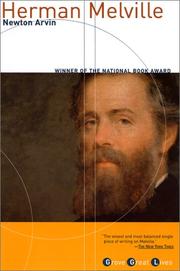
ISBN: 0802138713 9780802138712 Year: 2002 Publisher: New York Grove
Abstract | Keywords | Export | Availability | Bookmark
 Loading...
Loading...Choose an application
- Reference Manager
- EndNote
- RefWorks (Direct export to RefWorks)
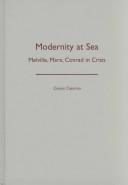
ISBN: 0816639264 Year: 2002 Publisher: Minneapolis, Minn. University of Minnesota Press
Abstract | Keywords | Export | Availability | Bookmark
 Loading...
Loading...Choose an application
- Reference Manager
- EndNote
- RefWorks (Direct export to RefWorks)
Thematology --- Comparative literature --- Conrad, Joseph --- Marx, Karl --- Melville, Herman
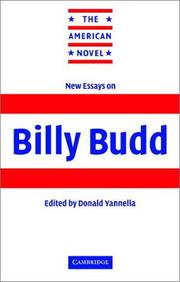
ISBN: 1107111846 1280151749 0511116047 0511039395 0511147856 0511325711 0511613741 0511052596 9780511039393 0521417783 9780521417785 0521428297 9780521428293 051103735X 9780511037351 9780511116049 9780511613746 9780511052590 9780511147852 9786610151745 6610151741 9781107111844 9781280151743 9780511325717 Year: 2002 Publisher: Cambridge Cambridge University Press
Abstract | Keywords | Export | Availability | Bookmark
 Loading...
Loading...Choose an application
- Reference Manager
- EndNote
- RefWorks (Direct export to RefWorks)
Billy Budd is Herman Melville's most read work after Moby-Dick. Melville wrote the novella during the 5 years before his death, and it was published posthumously in 1924. The essays collected here provide a multifaceted introduction to the work. Areas investigated include nineteenth-century political and social dynamics and the literary response they provoked, as well as the relevance of mythology and the histories of classical world and Judaeo-Christian civilization to Melville's book. Also examined are Melville's later writing, including the late poetry, the text's development, and its ambiguities. This collection will prove an invaluable resource for students of this major American writer.
Sea stories, American --- Executions and executioners in literature. --- Impressment in literature. --- Sailors in literature. --- Seamen in literature --- History and criticism. --- Melville, Herman, --- Melville, Herman --- Arts and Humanities --- Literature
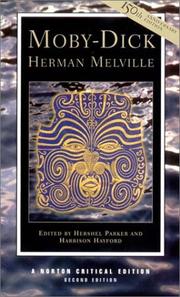
ISBN: 0393972836 9780393972832 Year: 2002 Volume: *3 Publisher: New York London Norton
Abstract | Keywords | Export | Availability | Bookmark
 Loading...
Loading...Choose an application
- Reference Manager
- EndNote
- RefWorks (Direct export to RefWorks)
"Moby Dick (1851) is an epic tale of the conflict between man and his fate. Captain Ahab's obsessive quest to destroy the great white whale that tore off his leg leads the Pequod and its crew to disaster. Melville's extraordinary narrative defies c1assification: it teems with ideas and imagery and the passion of its author."--Jacket. "For this Sesquicentennial Norton Critical Edition, the Northwestern-Newberry text of Moby-Dick has been generously footnoted to include dozens of biographical discoveries, mainly from Hershel Parker's work on his two-volume biography of Melville. A section of "Whaling and Whalecraft" features prose and graphics by John B. Putnam, a sample of contemporary whaling engravings, as well as, new to this edition, an engraving of Tupai Cupa, the real-life inspiration for the character of Queequeg. Evoking Melville's fascination with the fluidity of categories like savagery and civilization, the image of Tupai Cupa fittingly introduces "Before Moby-Dick: International Controversy over Melville," a new section that documents the ferocity of religions, political, and sexual hostility toward Melville in reaction to his early books, beginning with Typee in 1846. The image of Tupai Cupa also evokes Melville's interest in the mystery of self-identity and the possibility of knowing another person s "queenly personality" (Chapter 119). That theme (focused on Melville, Ishmael, and Ahab) is pursued in "A Handful of Critical Challenges," from Walter E. Bezanson's classic centennial study through Harrison Hayford's meditation on "Loomings" and recent essays by Camille Paglia and John Wenke. In "Reviews and Letters by Melville," a letter has been redated and a wealth of new biographical material has been added to the footnotes, notably to Melville's "Hawthorne and His Mosses." "Analogues and Sources" retains classic pieces by J.N. Reynolds and Owen Chase, as well as new findings by Geoffrey Sanborn and Steven Olsen-Smith. In "Reviews of Moby-Dick" emphasizes the ongoing religious hostility toward Melville and highlights new discoveries, such as the first-known Scottish review of The Whale. "Posthumous Praise and the Melville Revival: 1893-1927" collects belated, enthusiastic praise up through that of William Faulkner. "Biographical Cross-Light" is Hershel Parker's somber look at wha t writing Moby-Dick cost Melville and his family."--Publisher's website.
American literature --- Ahab [Capitaine] (Personnage littéraire) --- Ahab [Captain] (Fictitious character) --- Ahab [Kapitein] (Literair personage) --- Whaling in literature --- Melville, Herman --- Ahab, Captain (Fictitious character) --- Whaling ships --- Ship captains --- Mentally ill --- Whaling --- Whales --- Melville, Herman,
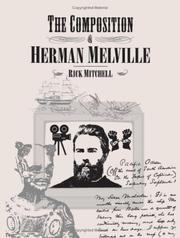
ISBN: 9781841500676 1841500674 9786610476664 1280476664 1841508292 9781841508290 9781280476662 Year: 2002 Publisher: Bristol Portland : Intellect,
Abstract | Keywords | Export | Availability | Bookmark
 Loading...
Loading...Choose an application
- Reference Manager
- EndNote
- RefWorks (Direct export to RefWorks)
This play, which contains biographical information relating to Herman Melville, is fundamentally an exploration of the ways in which these two things take place. The play admits the truth of Walter Benjamin's view of history as ''time filled by the presence of the now''. Parallels between past and present (e.g., racism, domestic abuse, and the plight of the visionary American artist) are clearly implied, but the play also utilizes new technologies, in particular video, in order to represent the kind of dialectical history and representation promoted by Benjamin. During Melville's lifetime, and
Romanciers. --- Novelists --- Melville, Herman, --- American drama. --- American literature --- Melville, Herman --- Melvill, German --- Melville, Hermann --- Meville, Herman --- Melvil, Cherman --- Mai-erh-wei-erh, Ho-erh-man --- Melṿil, Herman --- Tarnmoor, Salvator R. --- מלוויל, הרמן, --- מלויל, הרמן, --- ميلڤيل، هرمن، --- 麥爾維爾, --- Virginian spending July in Vermont, --- Melvill, Herman,
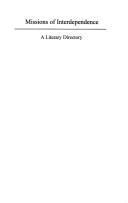
ISBN: 9042014199 9042014296 9004486429 Year: 2002 Publisher: Amsterdam Rodopi
Abstract | Keywords | Export | Availability | Bookmark
 Loading...
Loading...Choose an application
- Reference Manager
- EndNote
- RefWorks (Direct export to RefWorks)
Sociology of literature --- English literature --- Atwood, Margaret --- Kincaid, Jamaica --- Malouf, David --- Narogin, Mudrooroo --- Walcott, Derek --- Brodber (erna) --- Carey (peter), 1943 --- -Findley (timothy), 1930 --- -Ghosh (amitav) --- Melville (pauline) --- Phillips (caryl), 1958 --- -Roy (arundhati), 1961 --- -Wendt (albert)
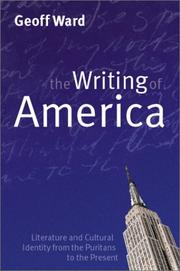
ISBN: 0745626211 074562622X Year: 2002 Publisher: Cambridge Oxford Polity Press Blackwell Publishers
Abstract | Keywords | Export | Availability | Bookmark
 Loading...
Loading...Choose an application
- Reference Manager
- EndNote
- RefWorks (Direct export to RefWorks)
American literature --- Sociolinguistics --- anno 1700-1799 --- anno 1800-1999 --- #KVHA:Literatuurgeschiedenis; Verenigde Staten --- #KVHA:Geschiedenis; Verenigde Staten --- #KVHA:American Studies --- Group identity in literature. --- National characteristics, American, in literature. --- Nationalism and literature --- History and criticism. --- American national characteristics in literature --- Amerikaans volkskarakter in de literatuur --- Burroughs, William Seward, 1914-1997. The Naked Lunch --- Caractéristiques nationales américaines dans la littérature --- Groepsgevoel in de literatuur --- Group identity in literature --- Identité de groupe dans la littérature --- National characteristics [American ] in literature --- Volkskarakter [Amerikaans ] in de literatuur --- National characteristics, American, in literature --- Literature and nationalism --- Literature --- History and criticism --- United States --- Melville, Herman --- Criticism and interpretation --- Lippard, George --- Stowe, Harriet Elizabeth Beecher --- O'Hara, Frank --- Ginsberg, Allen --- Hawthorne, Nathaniel --- King, Stephen --- Emerson, Ralph Waldo --- Dick, Philip Kindred, 1928-1982 --- Poe, Edgar Allan --- Whitman, Walt
| Listing 1 - 10 of 10 |
Sort by
|

 Search
Search Feedback
Feedback About UniCat
About UniCat  Help
Help News
News